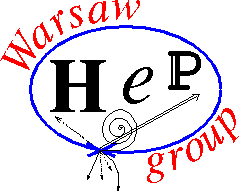SEMINARIUM FIZYKI WIELKICH ENERGII
Dnia 22 listopada (piątek) o godzinie 11:30, w sali B2.38 odbędzie się seminarium, na którym zostanie wygłoszony referat pt.:
„iThemba Laboratory for Accelerator-Based Sciences (LABS) „
Referuje: dr Rudolph Nchodu (deputy director of the iThemba LABS, Cape Town)
iThemba LABS is the hub to a vibrant research, human capital development, and collaboration network for nuclear science that includes the South African universities, research institutions and international counterparts.
The iThemba LABS K=200 separated sector cyclotron (SSC), one of the accelerator complex comprising 3 accelerators, has been used for nuclear physics research, particle (neutron and proton) therapy, and radioisotope production since its commissioning in 1986. In the first 30 years of the SSC’s operation, the beam time has been equally divided between the three programs, which severely limited the competitiveness of the nuclear physics research program. iThemba LABS acquired a new 70 MeV cyclotron that will be dedicated to isotope production, which will free up the SSC for research.
Nuclear Physics research at iThemba LABS serves as the backbone of research at iThemba LABS and the research programs in the next 5 to 10 years will be focused on niche areas where the laboratory’s research program will complement the research carried out at cognate laboratories around the world. The Long Range Plan initiated in 2017 aiming for increasing the nuclear physics research capacity as well as the technical R&D and the required human capacity development, will be presented as well as the status of its implementation. The prominent global position that iThemba LABS Facility enjoys and its critical role in coordinating the continental contribution to collaborative initiatives with international nuclear Physics institutions will be discussed.
Serdecznie zapraszamy
dr hab. Katarzyna Grzelak
prof. dr hab. Aleksander Filip Żarnecki

